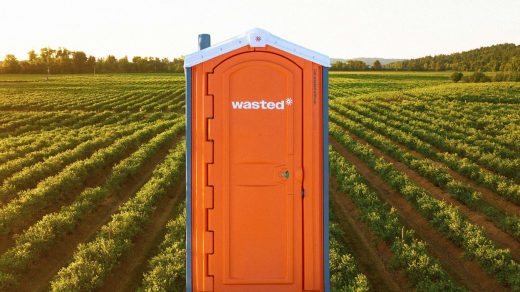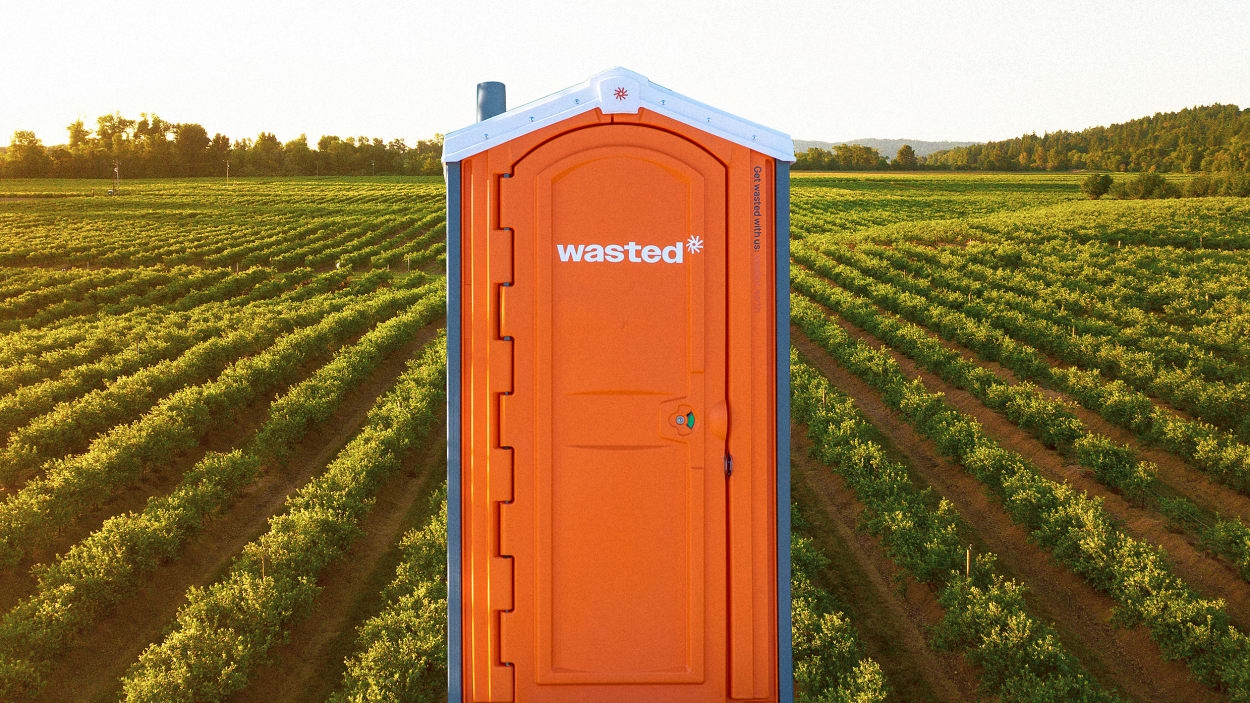No one likes using a port-a-potty, but at least this one makes fertilizer
Whether at a job site or a music festival, braving the port-a-potty is a universally bad experience: gingerly stepping inside, desperately holding your breath, executing your business as quickly as possible, then bolting out and applying hand sanitizer.
A Vermont-based company doesn’t want your chamber-pot-of-horrors ordeal to be in vain. Wasted, which launched this week, aims to transform the sordid contents of portable toilets into high-quality fertilizers that are usable in agriculture. More broadly, it hopes to create a circular sanitation system that’s more resilient in the climate era—and to improve the inescapably unpleasant experience of the port-a-potty.
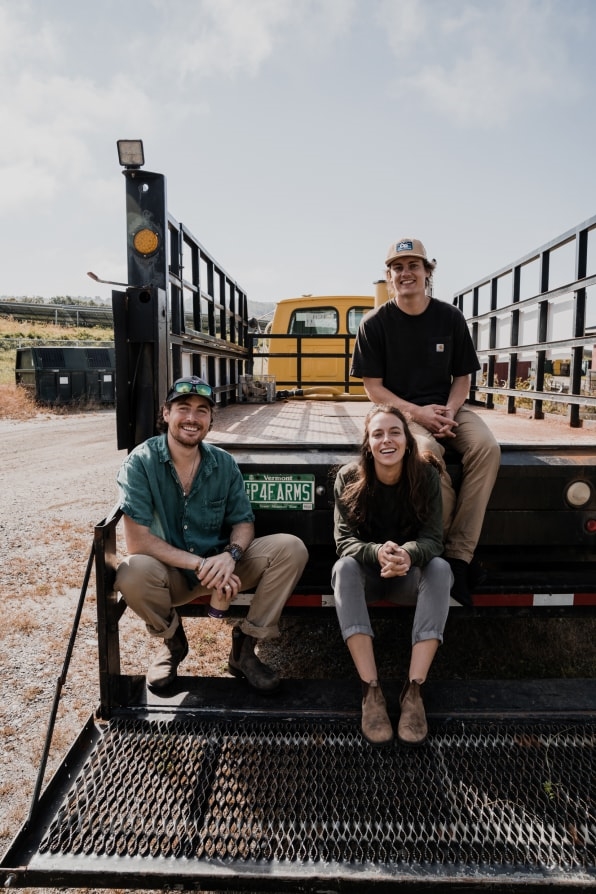
Most of us “just flush the toilet, and it goes out of sight, out of mind,” says Brophy Tyree, CEO and cofounder of Wasted. As with household toilets, the mess we leave behind makes its way to centralized wastewater treatment centers that were built long ago and are unequipped for the climate crisis.
In recent years, floods have put facilities out of operation and even released raw sewage; during the recent flooding in California’s Bay Area, 62 million gallons of raw sewage leaked into waterways—enough to fill 94 Olympic-sized pools. As the crisis worsens in the future, Tyree says, people may be forced to migrate en masse away from climate disasters and become displaced, meaning a centralized sanitation infrastructure won’t be of much use.
Wasted is launching its vision for a new circular sanitation system humbly: by taking on the age-old port-a-potty. The company is starting in Burlington, Vermont, where it will deploy 200 portable toilets over the next nine months to about 60 construction sites, small businesses, and event venues. These sites will pay $200 per potty per month, and Wasted will turn the bodily matter into fertilizer, recovering the rich nutrients that ordinarily go to waste.
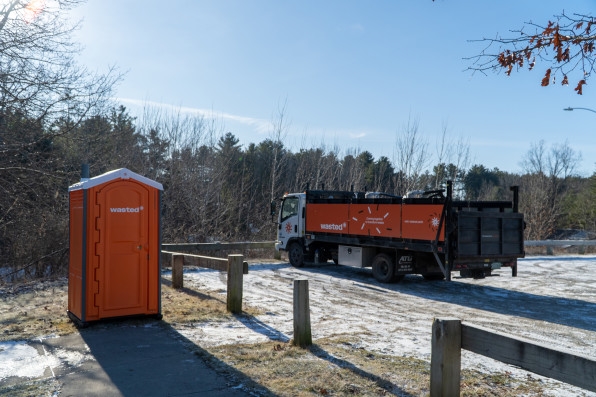
A crucial factor in the process is the separation of feces and urine. Sometimes referred to in the industry as “urine diversion,” the idea is that waste is better separated than together. “Humans are actually the only animals that intentionally combine their poop and pee,” Tyree says.
While mixed matter is still valuable, Tyree says separating it offers more control over the extraction of minerals from urine that are nutritious for plants, namely nitrogen, phosphorus, and potassium. Excrement takes longer to sanitize, but eventually when it’s broken down it can help microorganisms flourish and produce micronutrients.
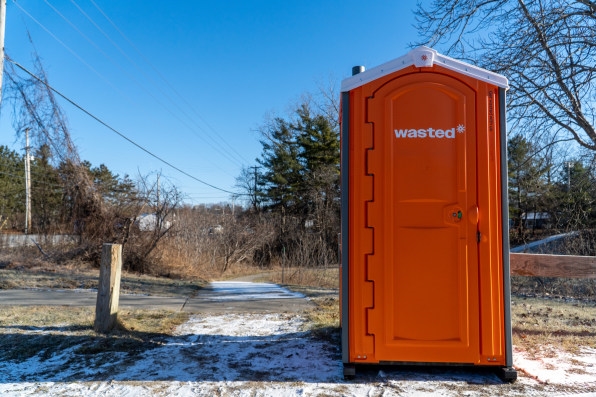
Wasted’s founders learned a lot from the Rich Earth Institute in Brattleboro, Vermont, which has been working for the past decade on converting urine into fertilizer (and which holds a yearly urine summit). Using the institute’s guidance, the founders started Do Good Shit in 2019, a nonprofit that installs sustainable waste management systems in backcountry regions from Tahoe to Patagonia, after the outdoorsy founders realized waste was just piled in huge pits. They set up urine-diverting toilets, separating pee from feces. “That’s how nature is designed to process waste,” Tyree says.
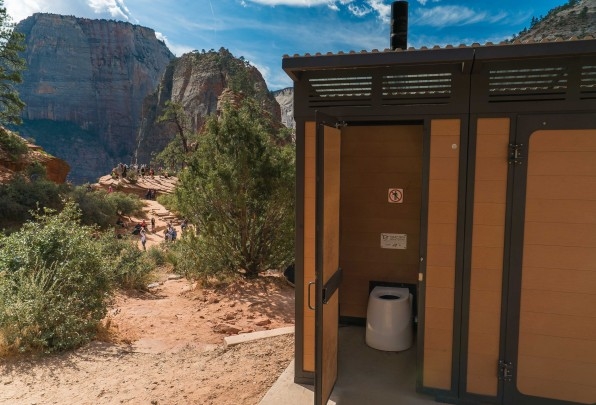
Now the same concept will apply to the port-a-potties: Feces will stay in the toilet container, while urine will flow into its own holding tank. Once per week, a technician will pump out the urine and excrement to be treated separately, and transport them overground—without the need for piping—to a treatment hub outside of Burlington, where they’ll be transformed into fertilizer. Wasted’s founders hope to work with farmers in the Burlington area, using agricultural contacts from the Rich Earth Institute’s network.
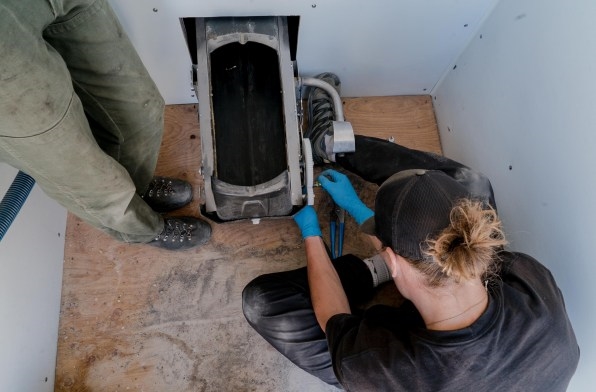
Plans are to scale up the business to a larger (as yet unnamed) city at the beginning of 2024, where it can provide municipalities with more semipermanent portable public bathrooms for people with limited bathroom access, such as those who are homeless. While the above-ground transport and processing would remain the same, the facilities themselves would be made sturdier and heavier.
In fact, Wasted’s founders are working to redesign the entire look and feel of the standard port-a-potty, from the exterior to the ventilation system. They want to drastically reboot the nasty potty experience for “all body types and needs and abilities,” Tyree says. “One of our pillars is sustainable sanitation. The other is dignified and beautiful sanitation.”
(17)

